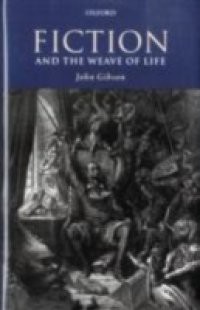Literature is a source of understanding and insight into the human condition. Yet ever since Aristotle, philosophers have struggled to provide a plausible account of how this can be the case. For surely the fictionality - the sheer invented character - of the literary work means that literature concerns itself not with the real world but with other worlds - what are commonly called fictional worlds. How is it, then, that fictions can tell us something ofconsequence about reality? In Fiction and the Weave of Life, John Gibson offers a novel and intriguing account of the relationship between literature and life, and shows that literature's great cultural and cognitive value is inseparable from its fictionality and inventiveness.

